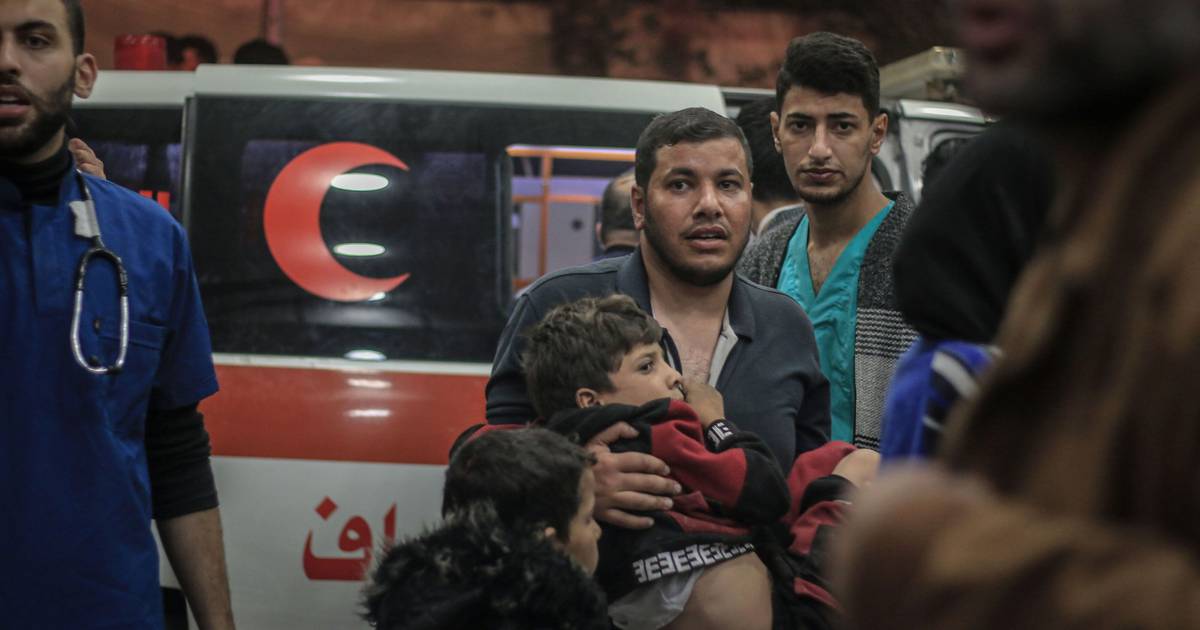The United States vetoed a United Nations (UN) Security Council resolution that would have called for a ceasefire in Gazarejecting desperate efforts by Arab leaders as alarm grows over the military campaign of Israel.
The United States was the only nation in the 15-member council to vote against the resolution., which he criticized for not condemning the October 7 attacks by Hamas, including sexual violence, and said it would not lead to peace. The United Kingdom abstained and 13 nations voted in favor.
“Unfortunately, almost all of our recommendations were ignored and the result of this rushed process was an unbalanced resolution that was divorced from reality,” said Robert Wood, deputy US ambassador to the UN.
The resolution was presented by United Arab Emirates after UN Secretary General Antonio Guterres urged the Security Council to act. The proposal had almost 100 cosponsors, a clear indication of how Opposition to the military campaign is growing Israel in Gaza.
The Biden administration has also expressed reservations about the high number of civilian deaths (more than 17 thousand Palestinians killed)but argues that Israel should have the right to defend itself from Hamas, which is labeled a terrorist organization only by the United States and the European Union.
Hours before, officials Saudi Arabia, Qatar, Egypt, Jordan, Türkiye and the Palestinian territories They had defended the ceasefire resolution during a visit to Washington. It was the group’s last stop on a tour of permanent members of the Security Council, which began in Beijing last month.
The veto of the resolution offers crucial support to Israel, in line with President Joe Biden’s argument that America’s close ally should not have to tolerate the Hamas threat. But it also alienates many allies abroad and progressive Democrats at home.
The decision to abstain would have calmed the Arab world, but would have exacerbated tension with Israel and weakened US influence over Prime Minister Benjamin Netanyahu’s war plans.
“Against the backdrop of grave warnings from the secretary-general, calls from humanitarian actors, global public opinion, this council is isolating itself,” Mohamed Abushahab, deputy ambassador of the United Arab Emirates, said after the vote.
The United Arab Emirates and other supporters of the resolution argued that Israel’s offensive, which according to Gaza health authorities has killed more than 17,000 peoplehas been too indiscriminate and has caused a humanitarian crisis for Palestinians who remain trapped and displaced in Gaza.
The resolution followed an unusual plea from Guterres to the council. Earlier this week, he invoked the U.N. chief’s most powerful diplomatic tool, the Article 99 of the UN Charterfor the first time in five decades to urge Council action given the grave humanitarian situation in Gaza.
“The people of Gaza are staring into the abyss,” Guterres told the Security Council on Friday. “The international community must do everything possible to end their ordeal.”
Meanwhile, Israel continued its offensive in Gaza this Friday and Hamas attacked Israel with rockets. Israeli troops entered the southern city of Khan Younisthe hometown of Hamas Gaza leader Yahya Sinwar.
Witnesses said Israeli tanks were approaching the city center, where People were advised to evacuate further south to Rafah, bordering Egypt.. Thomas White, director of the UN Public Works Agency in Gaza, wrote in X that “civil order is breaking down” and that aid convoys are being looted and UN vehicles are being stoned.
Palestinian Authority Prime Minister Mohammad Shtayyeh said in an interview that he is working with U.S. officials on a plan to govern Gaza after the war ends, arguing that Israel’s goal of completely defeating Hamas is unrealistic and that the militant group should join it under a new governance structure.
On Thursday, Blinken acknowledged growing frustration over Israel’s campaign, suggesting that Israel was not doing enough to protect civilians.
“There is a gap between what I said in Israel regarding the protection of civilians and what we are now witnessing on the ground,” he said.

